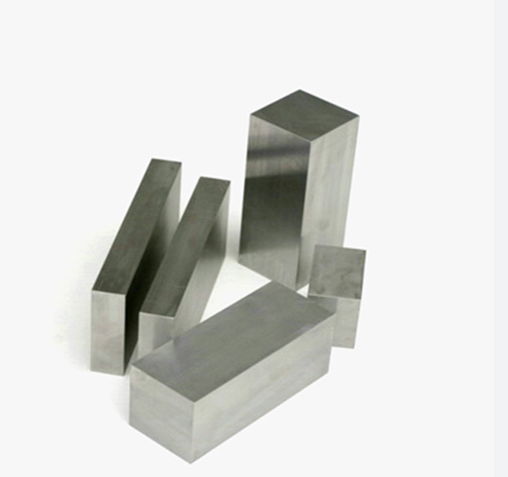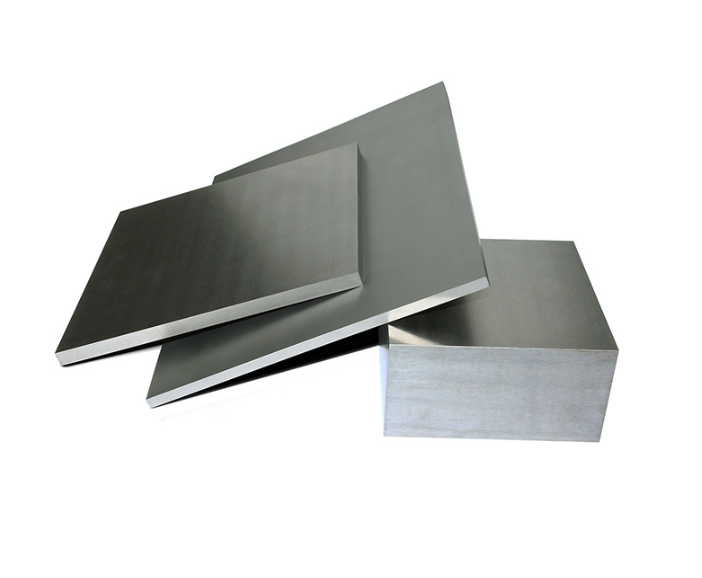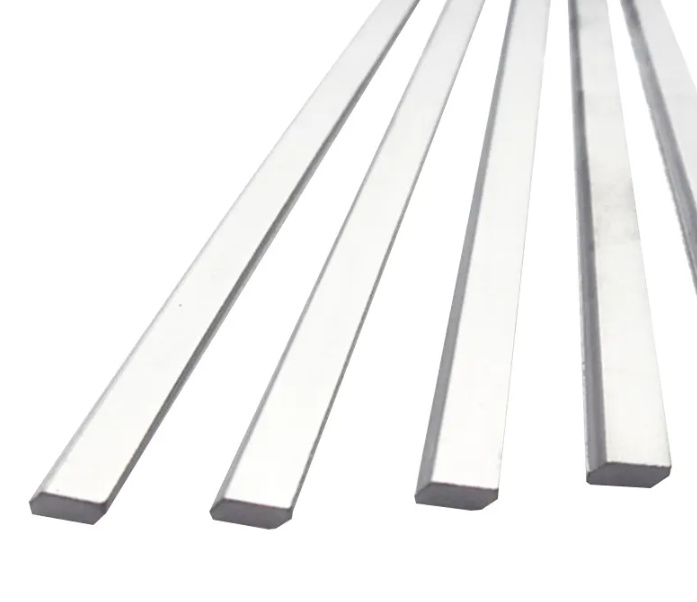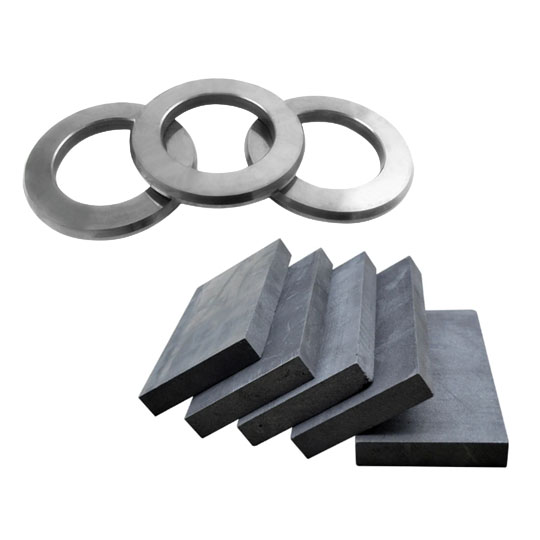소개: 현대 기계 가공의 최첨단
효율성과 정밀성을 끊임없이 추구하는 기계 가공의 세계는 다음과 같은 혁명을 목격했습니다. 카바이드 인서트s. 이 작지만 강력한 절삭 공구는 재료 제거 공정을 재정의하여 탁월한 경도, 내마모성 및 다용도성을 제공합니다. 이 종합 가이드에서는 카바이드 인서트의 구성, 용도, 장점 및 가공 요구에 맞는 완벽한 인서트를 선택할 때 고려해야 할 주요 사항을 살펴보며 카바이드 인서트의 세계를 자세히 살펴봅니다.
카바이드 인서트의 이해: 카바이드 인서트는 무엇인가요?
도구 정의하기:
A 카바이드 인서트 는 일반적으로 뛰어난 경도와 내마모성으로 유명한 복합 재료인 초경합금으로 정밀하게 설계된 절삭 공구입니다. 이 인서트는 인덱싱이 가능한 여러 개의 절삭날 또는 면을 갖추고 있어 한 개의 인서트로 빠르게 교체하고 여러 용도로 사용할 수 있습니다. 공구 홀더에 단단히 고정되어 있어 가공 작업 중 안정성과 정밀도를 제공합니다.
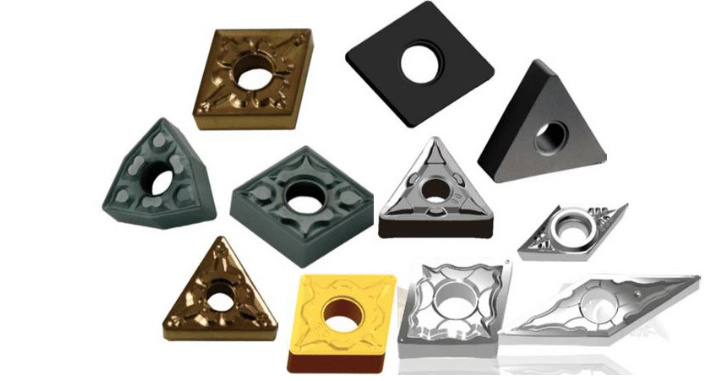
카바이드 인서트의 주요 이점:
- 탁월한 경도: 초경합금의 고유한 경도로 인해 경화강, 주철, 고온 합금 등 다양한 소재를 가공할 수 있습니다.
- 뛰어난 내마모성: 카바이드 인서트는 내마모성이 뛰어나 공구 수명을 연장하고 공구 교체로 인한 가동 중단 시간을 줄여줍니다.
- 고온 안정성: 고속 가공 시 발생하는 높은 온도에서도 절삭날의 날카로움과 치수 안정성을 유지합니다.
- 인덱서블 디자인: 하나의 인서트에 여러 개의 절삭날이 있어 인덱싱이 가능하므로 도구 활용도를 극대화하고 비용을 절감할 수 있습니다.
- 다용도성: 선삭, 밀링, 홈 가공, 나사 가공 등 다양한 가공 작업에 적합하도록 다양한 모양, 크기, 형상으로 제공됩니다.
자세히 알아보기: 유형, 등급 및 도형
다양한 선택의 세계:
카바이드 인서트는 특정 재료와 가공 작업에 최적화된 다양한 유형으로 제공됩니다. 몇 가지 일반적인 유형은 다음과 같습니다:
- 터닝 인서트: 원통형 선삭, 면삭 및 프로파일링 작업에 사용됩니다.
- 밀링 인서트: 평평한 표면, 슬롯 및 윤곽을 밀링하기 위해 설계되었습니다.
- 그루브 인서트: 홈, 채널 및 홈을 만드는 데 특화되어 있습니다.
- 스레딩 인서트: 내부 및 외부 스레드 절단에 사용됩니다.
카바이드 등급 이해:
초경 재종은 초경합금 재료의 특정 구성과 특성을 나타냅니다. 특정 재료 그룹과 가공 조건에 따라 다양한 재종이 설계됩니다.
- C-등급: 가공용 강철, 스테인리스강 및 주철에 적합한 범용 등급입니다.
- M-등급: 스테인리스강, 고온 합금 및 기타 절삭하기 어려운 소재 가공에 최적화되어 있습니다.
- K-등급: 주철, 비철 금속 및 비금속 재료 가공용으로 설계되었습니다.
- P-등급: 고속 가공 및 마감 작업을 위해 특별히 설계되었습니다.
삽입 지오메트리 디코딩:
레이크 각도, 간격 각도, 칩 브레이커를 포함한 인서트 지오메트리는 칩 형성, 칩 배출 및 표면 마감에 중요한 역할을 합니다.
- 레이크 각도: 절삭력, 칩 두께 및 표면 조도에 영향을 미칩니다. 레이크 각도가 양수이면 절삭력은 감소하지만 절삭날이 약해질 수 있습니다.
- 클리어런스 각도: 칩 배출을 위한 공간을 제공하고 인서트와 공작물 사이의 마찰을 방지합니다.
- 칩브레이커: 칩 형성을 제어하고 절단 영역에서 칩 흐름을 유도하는 인서트 표면의 홈 또는 홈입니다.
산업 전반의 애플리케이션: 정밀도와 성능이 만나는 곳
주요 부문의 효율성 향상:
카바이드 인서트는 다음과 같은 다양한 산업 분야에서 없어서는 안 될 도구입니다:
- 자동차: 엔진 블록, 실린더 헤드, 변속기 부품 및 높은 정밀도와 내구성이 요구되는 기타 중요 부품을 제조합니다.
- 항공우주: 터빈 블레이드, 엔진 부품, 랜딩 기어 및 탁월한 강도와 신뢰성이 요구되는 구조 요소를 생산합니다.
- 의료 기기 제조: 엄격한 허용 오차와 생체 적합성이 요구되는 임플란트, 수술 기구 및 기타 의료 기기를 제작합니다.
- 에너지: 석유 및 가스 탐사, 발전, 재생 에너지 시스템용 기계 가공 부품.
- 일반 제조: 기계 공장, 제조 시설 및 제조 공장에서 다양한 가공 작업을 위해 널리 사용됩니다.
공급업체 비교: 카바이드 인서트 시장 탐색하기
| 공급업체 | 위치 | 가격 범위(인서트당) | 스페셜티 |
|---|---|---|---|
| 샌드빅 코로만트 | 스웨덴 | $10 – $50+ | 다양한 애플리케이션, 고급 코팅 및 형상을 위한 광범위한 인서트 제품군 |
| 케나메탈 | 미국 | $8 – $40+ | 까다로운 애플리케이션을 위한 고성능 인서트, 혁신적인 툴링 솔루션 |
| TRUER | 중국 | $7 – $35+ | 다양한 인서트 형상, 비용 효율적인 솔루션, R&D에 대한 강력한 초점 |
| 미쓰비시 머티리얼즈 | 일본 | $9 – $45+ | 고품질 인서트, 고급 코팅 및 특정 산업을 위한 특수 툴링 |
장단점 비교하기: 장점과 한계
| 장점 | 제한 사항 |
|---|---|
| 탁월한 경도 및 내마모성 | HSS 도구에 비해 높은 초기 비용 |
| 고온 안정성 및 내산화성 | 충격 하중을 받으면 부서지기 쉽고 깨지기 쉽습니다. |
| 도구 활용도를 극대화하는 인덱서블 디자인 | 특정 도구 홀더 시스템 필요 |
| 다양한 용도에 맞는 광범위한 등급, 형상 및 코팅을 제공합니다. | 최적의 성능을 위해서는 적절한 선택과 적용이 중요합니다. |
TRUER의 차별화: 카바이드 인서트 요구 사항을 위해 당사를 선택해야 하는 이유는 무엇입니까?
최첨단 기술 분야의 선두주자와의 파트너십:
- 타협하지 않는 품질: 당사는 평판이 좋은 제조업체로부터 카바이드 인서트를 공급받아 일관된 품질과 성능을 보장합니다.
- 애플리케이션별 전문성: 숙련된 엔지니어 팀이 고객의 특정 가공 요구에 맞는 최적의 인서트를 선택할 수 있도록 안내해 드립니다.
- 경쟁력 있는 가격 및 적시 배송: 당사는 경쟁력 있는 가격을 제공하며 주문을 신속하게 배송하여 가동 중단 시간을 최소화하고 생산성을 극대화하기 위해 노력합니다.
자주 묻는 질문: 카바이드 인서트 쿼리 해결
1. 내 용도에 맞는 카바이드 재종은 어떻게 선택하나요?
가공할 재료, 가공 작업 유형 및 원하는 공구 수명을 고려하세요. 가장 적합한 등급을 결정하려면 공급업체 카탈로그를 참조하거나 전문가의 조언을 구하세요.
2. 인서트 지오메트리 선택에 영향을 미치는 요소는 무엇인가요?
가공되는 재료, 절삭 깊이, 원하는 표면 마감, 공작 기계 기능 등이 요인으로 작용합니다.
3. 카바이드 인서트의 인덱싱 또는 교체 시기를 어떻게 알 수 있나요?
마모의 징후로는 절삭력 증가, 표면 마감 불량, 과도한 열 발생, 절삭날의 칩핑 또는 파손 등이 있습니다.
4. 코팅 카바이드 인서트를 사용하면 어떤 이점이 있나요?
코팅은 공구 수명, 경도, 내마모성, 내산화성을 향상시켜 절삭 속도를 높이고 생산성을 향상시킵니다.
5. 카바이드 인서트를 올바르게 관리하고 보관하려면 어떻게 해야 하나요?
인서트는 충격과 습기로부터 보호되는 깨끗하고 건조한 환경에 보관하세요. 적절한 칩 브러시와 청소 방법을 사용하여 칩과 이물질을 제거합니다.

